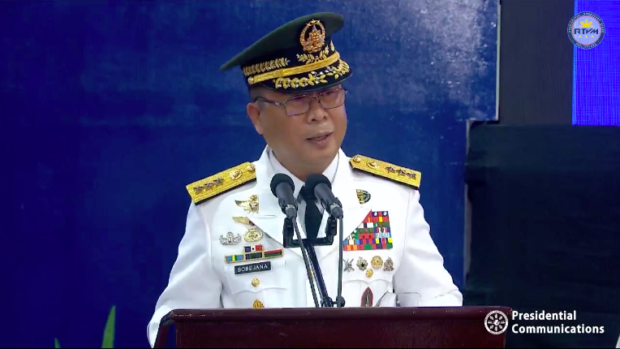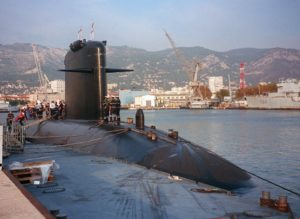
AFP chief Lt. Gen. Cirilito Sobejana
MANILA, Philippines — The Philippines will deploy more naval assets in the West Philippine Sea amid China’s “very alarming” and “very irresponsible” law allowing its coast guard to fire on foreign vessels in contested waters, Armed Forces of the Philippines (AFP) chief Lt. Gen. Cirilito Sobejana said Tuesday.
“Well ‘yang pronouncement ng China na their coast guard can open fire to people intruding to their territory, it’s very alarming po. I should say it’s a very irresponsible statement dahil ang ating mga kababayan ay hindi naman pumupunta sa lugar na yan, sa disputed area para makipag-giyera kundi naghahanap buhay,” Sobejana said in a televised briefing.
(China’s pronouncement that their coast guard can open fire to people intruding on their territory is very alarming and I should say it’s a very irresponsible statement because our fellowmen who go in these disputed areas do not go there to wage war but for their livelihoods.)
“So ang gagawin po natin as part of our mandate to secure the people, iincrease po natin yung ating visibility through the deployment of more naval assets. But I just want to make clear that our navy presence there is not to wage war against China but to secure our people,” he added.
(As part of our mandate to secure the people, we ill increase our visibility through the deployment of more naval assets. But I just want to make clear that our navy presence there is not to wage war against China but to secure our people.)
Defense Secretary Delfin Lorenzana himself said China’s coast guard law raises the risks of miscalculation and accidents in the disputed waters.
Meanwhile, the Philippine government already filed a diplomatic protest against the said law which was seen as a “verbal threat of war to any country that defies” it.
But the Chinese Embassy in the Philippines slammed the “false accusations” against the new China law, saying it conforms with international conventions and is not specifically targeted at any certain country.


